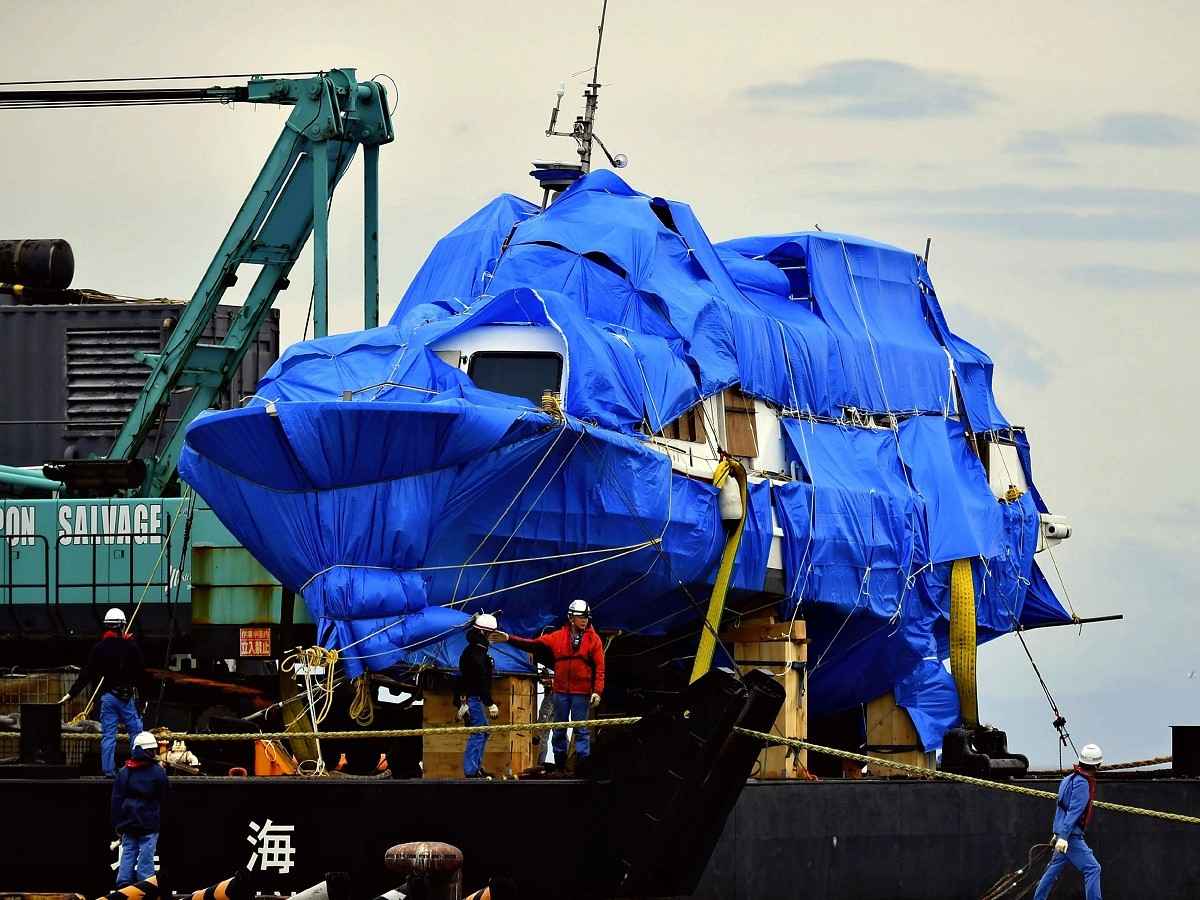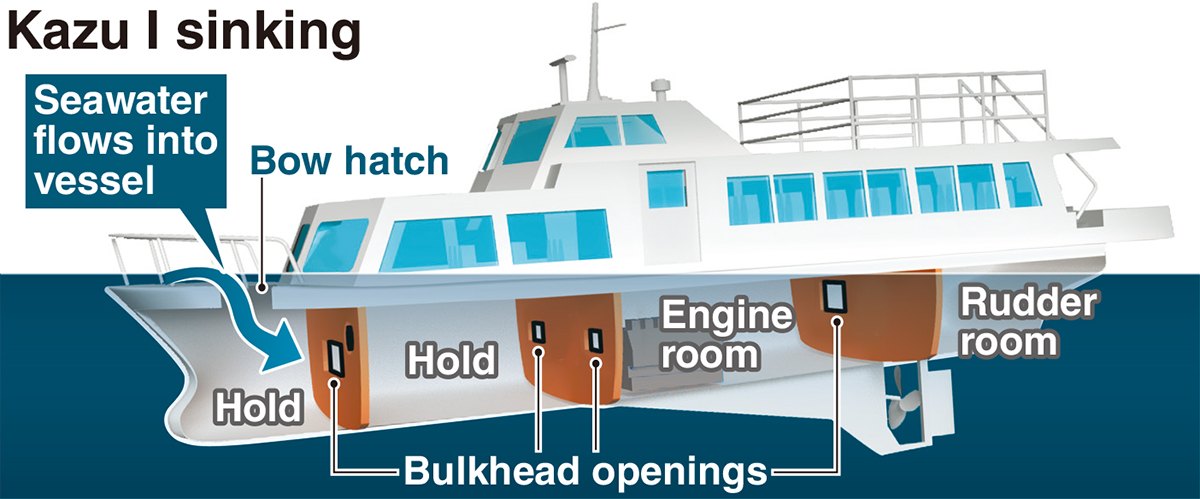Watertight Bulkheads to be Mandatory on Small Passenger Vessels Following Fatal Accident in Hokkaido

The wreckage of the Kazu I sightseeing boat is seen covered in blue sheets in Abashiri, Hokkaido, on May 27, 2022.
17:36 JST, April 4, 2023
It will be mandatory to install watertight bulkheads in all new small passenger boats from fiscal 2025 following a fatal accident in Hokkaido last year, the government announced Tuesday.
The Kazu I sightseeing boat sank in waters off the Shiretoko Peninsula on April 23 with 26 people aboard. The bodies of 20 victims have been found and six people are unaccounted for.
The Land, Infrastructure, Transport and Tourism Ministry will revise a ministry ordinance under the Ship Safety Law after studying the measure.
According to an accident report released by the ministry’s Transport Safety Board in December last year, there were openings on the bulkheads that divided the Kazu I’s four below-deck compartments — two holds, an engine room and a rudder room.
When high waves sent water flooding through the vessel’s open bow hatch, water spread to the engine room and other areas through the bulkhead openings, leading to the sinking of the boat.
Under existing regulations, small passenger boats like the Kazu I that sail in coastal waters within a two-hour round trip from port are not required to install watertight bulkheads.
According to the accident report, the boat would not have sunk if its bulkheads had been watertight.

The ministry believes its planned measure will mitigate the risk of a boat sinking in similar circumstances and thus improve the safety of small passenger vessels.
The hatch and other parts of the bow must be watertight under current regulations. The operators of small passenger vessels will be urged to also make the whole boat watertight to prevent flooding below deck during high waves.
There will be a grace period ahead of the regulation change to avoid impacting the construction schedule of planned vessels.
Making the bulkheads of existing vessels watertight is likely to be difficult, so the ministry will make it mandatory to install warning devices to detect flooding and drainage equipment.
According to the ministry, “groundings, collisions, or minor impacts” accounted for 85% of about 230 accidents involving small passenger vessels.
The installation of watertight bulkheads is expected to reduce the risk of sinking in such accidents.
Among other safety measures, the ministry has already decided to make it mandatory for boat operators to use radio communication for business use instead of mobile phones, and to carry upgraded safety rafts that are easier for passengers to get into in the event of an emergency.
The ministry also plans to make it mandatory for operators to install a dashcam-like device, so that incidents can be checked after close calls.
Top Articles in Politics
-

Japan Seeks to Enhance Defense Capabilities in Pacific as 3 National Security Documents to Be Revised
-

Japan Tourism Agency Calls for Strengthening Measures Against Overtourism
-

Japan’s Prime Minister: 2-Year Tax Cut on Food Possible Without Issuing Bonds
-

Japan-South Korea Leaders Meeting Focuses on Rare Earth Supply Chains, Cooperation Toward Regional Stability
-

Japanese Government Plans New License System Specific to VTOL Drones; Hopes to Encourage Proliferation through Relaxed Operating Requirements
JN ACCESS RANKING
-

Univ. in Japan, Tokyo-Based Startup to Develop Satellite for Disaster Prevention Measures, Bears
-

JAL, ANA Cancel Flights During 3-day Holiday Weekend due to Blizzard
-

China Confirmed to Be Operating Drilling Vessel Near Japan-China Median Line
-

China Eyes Rare Earth Foothold in Malaysia to Maintain Dominance, Counter Japan, U.S.
-

Japan Institute to Use Domestic Commercial Optical Lattice Clock to Set Japan Standard Time
























